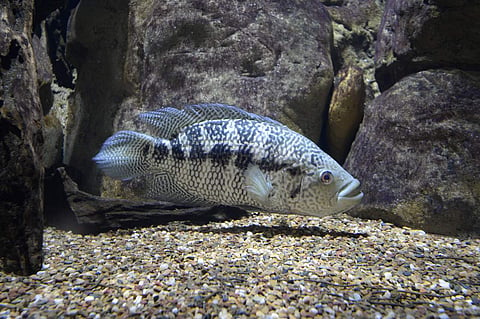

NEW DELHI: Dangerous multiple drug-resistant versions of bacteria with human health implications have been detected in Indian major carp or Rohu, a popular aquaculture fish consumed across India.
In an examination carried out by the National Institute of Biotic Stress Management of the Indian Council of Agricultural Research in Raipur, Chhattisgarh, the scientists found that Rohu fish were carrying a pathogen associated with hospital-acquired infections.
The test, which has for the first time found the presence of such a pathogen in the gastrointestinal tract of a widely consumed fish in the country, has highlighted the extent of improper hospital waste management and water pollution that has resulted in contamination of the aquatic environment.
“The findings are alarming because Rohu is a very popular freshwater fish in India and its contamination by a serious pathogen can lead to a major public health hazard,” said Binod Kumar Choudhary, a scientist with NIBSM, who along with three others, carried out the study.
“What is even more worrying is that these bacteria which are now in an aquatic system are capable of transferring drug-resistant genes to other commonly found bacteria like E Coli and make them much more difficult to treat,” Choudhary also said.
He added that it’s likely that a certain percentage of Rohu fish is contaminated with the bacteria in other parts of the country too.
“But the sad part is, those who consume it won’t know just by having a look at the fish from the outside,” Choudhary said.
“The isolation of R ornithinolytica isolate with reduced susceptibility to antibiotics was relatively high in this study and in previously reported cases. Frequent hospital outbreaks of infection caused by the selection of multidrug-resistant R ornithinolytica strains have been reported worldwide,” the study published in recent issue of Current Science said.
“The isolate in the present study was highly resistant to ampicillin, amoxicillin, clavulanic acid, tetracycline, doxycycline, co-trimoxazole, rifampicin, kanamycin, trimethoprim, oxytetracycline, colistin and pefloxacin, which confirmed its multidrug-resistant nature”.
As R ornithinolytica has the potential to be regarded as an emerging opportunistic pathogen and these bacteria are known to transmit antibiotic resistance genes in the food chain and environment, the emergence of this pathogen may cause the public health hazard, the scientists have also warned.